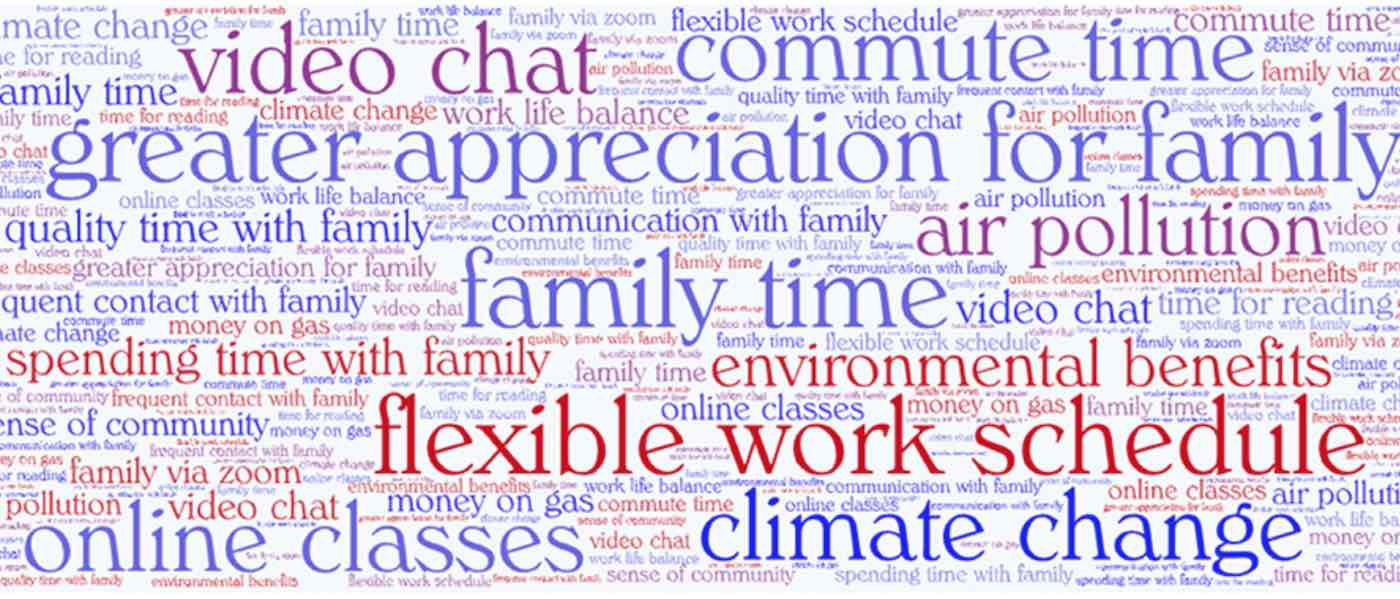Human beings, despite our predilection for drama, are exceptionally resilient creatures, and able to find the silver lining in almost everything.
A recent study queried the American population to find out what they consider to be the upsides of the pandemic.
A multi-disciplinary team from Harvard and Stanford conducted interviews of 3,113 participants over the seven-month period from March to September 2020.
The scientists found many things in the responses, for example that the pandemic itself didn’t often change this sample of America’s average weekly sentiment on life, and that the times when the people did find themselves down in the dumps correlated with other events such as the death of George Floyd and Ruth Bader Ginsberg.
Using statistical analysis, the researchers grouped words and themes together to find the most common silver linings amid the storm of covid waves and daily death counts.
Number one, reported by 46% of participants, was quality time with loved ones, including “The kids are helping around the house more, I’m in touch with my family who live far away,” or, “My husband and I take more walks, resulting in more time together.”
MORE: Anxiety Can Be a Habit – Which Means We Can Stop it, If We Know How
The second more-recognized silver lining was “life slowed down, I could do things calm without FOMO.” They also noted that because life was slower, they could get closer to God, pursue low-cost hobbies merely for fun, and find time for self-introspection.
Number three was community coming together, not just in terms of the local community in which the participant was a member, but seeing communities come together all over the world.
The other six themes, reported by between 8-12% of participants, and included the benefits of having a more flexible working schedule, or outright working from home, developing greater health literacy, and feelings of gratitude.
“Reflecting on silver linings may help people better recognize the external protective factors in their lives—such as having strong relationships with family or friends—or their own internal protective factors—such as having dispositional mindfulness or practicing gratitude,” the authors note.
RELATED: Little Kids Give You Pep Talks on Recorded Phone Hotline – And They’re Adorable (LISTEN)
“The process of identifying benefits may be helpful because it helps orient people to the presence of protective factors in their lives, which are ‘skills, strengths, or resources that can help them deal more effectively with stressful events’ that serve as psychological buffers that protect individuals from the potential harms of adverse situations.”
This research is published in Frontiers in Psychology.
Featured image: BioTex
SHARE The Silver Linings with Friends on Social Media…





















I do think that these things they have described in this article are key to improving mental, emotional and therefore physical health overall. Maybe we needed a big health crisis to bring this awareness to us that we are all just rushing to the grave with no thought about how or why we are doing that.